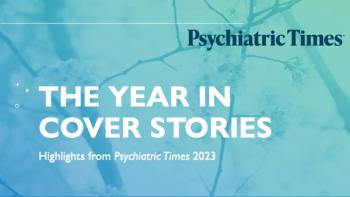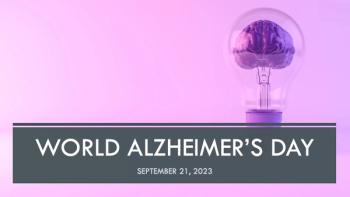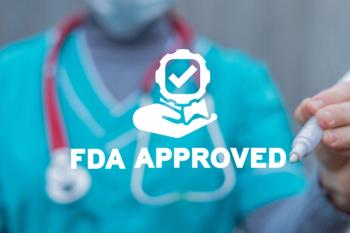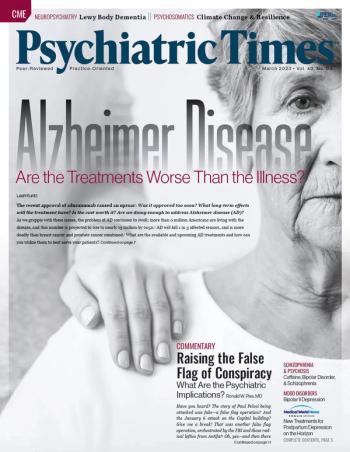
From the impact of BMI on clinical features of bipolar disorder to FDA approval of the first integrated TMS system for MDD and OCD, here are highlights from the week in Psychiatric Times.

From the impact of BMI on clinical features of bipolar disorder to FDA approval of the first integrated TMS system for MDD and OCD, here are highlights from the week in Psychiatric Times.

Biogen announced its decision to discontinue all development and sales of aducanumab (Aduhelm) for Alzheimer disease. Is this surprising?

Biogen has officially announced its decision to discontinue all development and sales of aducanumab (Aduhelm) for Alzheimer disease.

The candidate also aims to address neurodevelopmental and neurodegenerative disorders such as Parkinson disease and Rett syndrome.

How efficacious is brexpiprazole as a treatment for agitation associated with Alzheimer disease?

Here are highlights from some of the year’s top features in Psychiatric Times from throughout 2023.

Here are some updates from the world of psychiatry throughout the month of November.

What is new in research on psychedelics?

From neurological abnormalities in first-episode psychosis to psychiatric boarding in emergency departments, here are highlights from the week in Psychiatric Times.

What is new in research on dementia?

New positive data for brexpiprazole, the first and only treatment approved to treat agitation associated with dementia due to Alzheimer disease.

What is new in research on sleep?

Today is World Alzheimer's Day!

From a look at adolescent substance use to special challenges in treating borderline personality disorder during the perinatal period, here are highlights from the week in Psychiatric Times.
![“The described effects of ACD856 may improve cognition, increase resilience, and promote neurorestorative processes, thereby leading to a healthier brain in patients with [Alzheimer disease].”](https://cdn.sanity.io/images/0vv8moc6/psychtimes/bdc70454947152c592c8b15d4271e2ea649256ea-10500x4750.jpg?w=350&fit=crop&auto=format)
“The described effects of ACD856 may improve cognition, increase resilience, and promote neurorestorative processes, thereby leading to a healthier brain in patients with [Alzheimer disease].”

Trial results underscore the importance of early diagnosis and treatment in patients with Alzheimer disease.

From the FDA traditional approval of Leqembi to an examination of how we can improve mental health care for women of color, here are highlights from the week in Psychiatric Times.

Announcement follows the FDA’s accelerated approval and unanimous endorsement of the drug earlier this year.

From the relationship between social media and self-diagnosis to the FDA approval of the first treatment for agitation associated with Alzheimer disease dementia, here are highlights from the week in Psychiatric Times.

Brexpiprazole has been approved by the US Food and Drug Administration for the treatment of agitation associated with Alzheimer disease dementia.

From eating disorders in entertainment to early intervention for schizophrenia, here are highlights from the week in Psychiatric Times.

If approved, the drug will be the first FDA-approved treatment for agitation associated with Alzheimer dementia in the United States.

The experts weighed in on a wide variety of psychiatric issues for the March 2023 issue of Psychiatric Times.

From Alzheimer disease treatments to the psychiatric implications of conspiracy theories, here are highlights from the week in Psychiatric Times.

A look at one of the most informative yet easy-to-administer tests for assessing brain dysfunction.